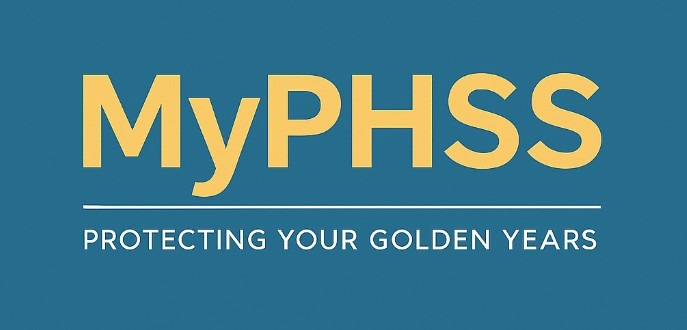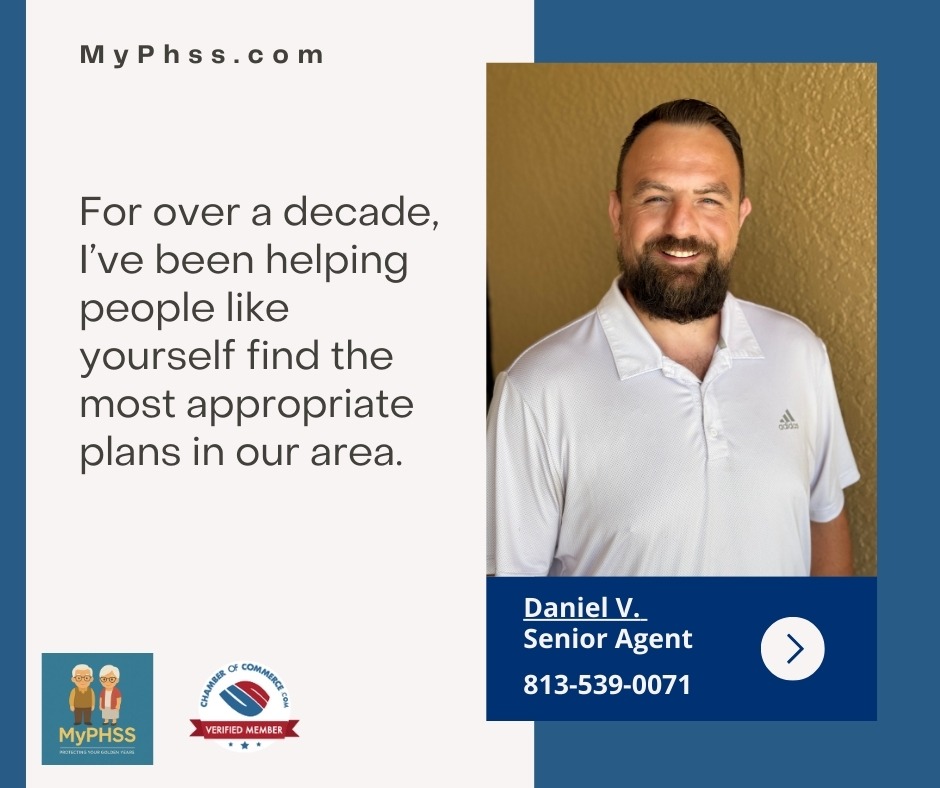Q&A - You asked, we answered
If you can’t find the question you have, just email your local agent.
To make the most of your appointment with MyPHSS, it’s helpful to have a few key items ready. Whether we’re meeting in person or over the phone, being prepared allows us to give you the best advice based on your unique situation.
Here’s what to have on hand:
📄 Current insurance paperwork (including Medicare, supplemental, or Advantage plans)
🪪 Your Medicare card and state-issued ID
💊 A list of your prescriptions and over-the-counter medications
👩⚕️ Names of your current doctors, specialists, and medical facilities
❓ Any questions you’d like to ask—it’s easy to forget them during the conversation, so jot them down ahead of time!
Our goal is to make this process simple, personal, and stress-free. Whether you’re exploring new coverage, comparing plans, or looking for cost-saving options, we’re here to help every step of the way.
📞 Call your local agent @813-539-0071
📧 Email us at support@myphss.com
🌐 Visit www.myphss.com to learn more or schedule your appointment
We proudly serve the Tampa Bay area and offer assistance statewide by phone.
At MyPHSS, we are independent insurance brokers, which means we’re not tied to just one company. Instead, we represent all the major insurance carriers available in Florida, so you can compare options and choose the plan that’s right for you—not the one a company is trying to push.
We work with trusted names like:
UnitedHealthcare®
Humana®
Aetna®
Cigna®
BayCare®
Wellcare®
Transamerica®
Mutual of Omaha®
CVS® and more
Because every person’s needs are different, we focus on what’s best for you, not what’s best for the insurance companies. Whether you’re looking for a Medicare Advantage plan, a Medigap policy, a final expense plan, or dental coverage, we’ll help you compare side by side and choose with confidence.
📞 Call your local agent @813-539-0071
📧 Email us at support@myphss.com
🌐 Learn more at www.myphss.com
We proudly serve the Tampa Bay area—including Pasco, Hernando, Pinellas, Hillsborough, Citrus, and Polk counties—and offer statewide phone assistance anywhere in Florida.
Nothing, if you decided to buy a policy and we are the writing agent the insurance company will pay us a commission for that sale. The price of your policy does not change because of that.
At MyPHSS, we proudly serve seniors throughout the Tampa Bay area, including:
Pasco County
Hernando County
Pinellas County
Hillsborough County
Citrus County
Polk County
If you’re local, we can meet in person at your home for a no-pressure consultation. However, you don’t have to live nearby to get our help—we also assist individuals anywhere in Florida over the phone or by email.
Whether you’re in Miami, Orlando, Jacksonville, or a small town in between, our licensed agents can walk you through your Medicare and final expense options from the comfort of your home.
📞 Call us at 813-539-0071
📧 Email us at support@myphss.com
🌐 Learn more at www.myphss.com
No matter where you live in Florida, MyPHSS is here to help protect your golden years.
Before COVID-19, we operated several local offices in the Tampa Bay area. Like many small businesses, we closed our doors during the pandemic and transitioned to working remotely for the safety of our staff and clients.
After restrictions were lifted, we found that our services ran just as smoothly—if not better—without the overhead costs of a traditional office space. By eliminating unnecessary expenses like rent and utilities, we’re able to focus more on serving our community and keeping costs down for our clients.
Today, your local MyPHSS agent can assist you over the phone, via email, or in person—right in the comfort of your own home, just like your plumber or electrician. It’s convenient, personal, and always pressure-free.
If you need to mail us something please use the following address:
13046 Race Track Rd #190 Tampa FL 33626
We proudly serve seniors across the Tampa Bay area, including Pasco, Hernando, Pinellas, Hillsborough, Citrus, and Polk counties.
Have questions or want to schedule an appointment?
📞 Call us at 813-539-0071
📧 Email us at support@myphss.com
🌐 Visit us online at www.myphss.com
At MyPHSS (Protecting Your Golden Years), we help Florida seniors feel confident and prepared for retirement by offering personalized insurance solutions and guidance—at no cost to you.
Our licensed local agents specialize in helping individuals age 60 and older navigate the often confusing world of Medicare and retirement planning. We offer in-home appointments in the Tampa Bay area or phone consultations for clients anywhere in Florida.
We can help you with:
Medicare Advantage Plans
Medicare Supplement (Medigap) Plans
Prescription Drug Plans (Part D)
Final Expense Life Insurance
Dental and Vision Plans
Long-Term Care Plans
Hospital Indemnity Plans
Fixed Annuities
As independent brokers, we represent all the major insurance companies in Florida, which means we work for you, not the insurance companies. You’ll get honest advice, clear explanations, and options that make sense for your health, lifestyle, and budget.
📞 Call us at 813-539-0071
📧 Email us at support@myphss.com
🌐 Visit us at www.myphss.com
We proudly serve the Tampa Bay area—including Pasco, Hernando, Pinellas, Hillsborough, Citrus, and Polk counties—and offer remote help across the entire state of Florida.
For the Tampa Bay area, please contact your local agent at 813-539-0071
When you schedule an in-person appointment with MyPHSS, one of our licensed local agents will visit you at your home—at a time that’s convenient for you. Appointments usually last about 1 to 2 hours, depending on your questions and needs.
During your visit, we’ll take the time to explain your options and help you understand which Medicare or Final Expense insurance plans may be right for you. We typically focus on one product at a time to avoid overwhelming you—but if you’re curious about other plans, we’re always happy to discuss them.
There’s no cost, no pressure, and no obligation. We do not handle any payments, and we are not affiliated with any specific insurance company. Everything is reviewed on a secure tablet, and if you decide to enroll, any necessary paperwork or plan materials will be mailed directly to you from the issuing company.
Ready to schedule your free in-home visit? Call us at 813-539-0071 or email support@myphss.com today.
A phone appointment with MyPHSS is a convenient way to get expert help with your Medicare or Final Expense insurance options—without leaving your home.
One of our licensed local agents will call you at a scheduled time and walk you through everything step by step. We’ll take the time to understand your needs, explain your plan options clearly, and answer any questions you may have.
Phone appointments usually take 30 minutes to an hour, depending on your situation. Just like our in-person visits, there’s no cost, no pressure, and no obligation—we’re here to provide helpful information, not sell you something you don’t need.
If you choose to enroll in a plan, everything can be completed securely over the phone, and any materials you need will be mailed directly to you.
To schedule your free phone consultation, call 813-539-0071 or email support@myphss.com.

